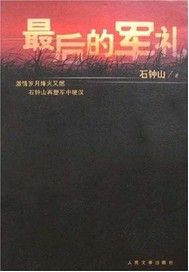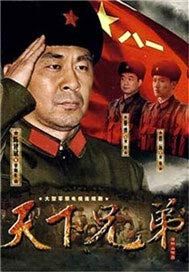當前位置:
紀實傳記
> 菊花與刀:日本文化諸模式
> 13.The Japanese Since VJ-Day
13.The Japanese Since VJ-Day
Americans have good reason to be proud of their part in the administration of Japan since VJ-Day。The great issue at the time of Japan's surrender was the nature of the oc-cupation。Were the victors to use the existing government,even the Emperor,or was it to be liquidated?Was there to be a town-by-town,province-by-province administration,with Military Government officers of the United States in command?The State-War-Navy directive to General MacArthur embodied a great decision on these matters,a decision which General MacArthur's Headquarters fully supported。The Japanese were to be re-sponsible for the administration and reconstruction of their country。
In the United States we have argued endlessly about hard and soft peace terms。The real issue is not between hard and soft。The problem is to use that amount of hardness,no more and no less,which will break up old and dangerous patterns of aggressiveness and set new goals。The means to be chosen depend on the character of the people and upon the traditional social order of the nation in question。Prussian authoritarianism,embedded as it is in the family and in the daily civic life,makes necessary certain kinds of peace terms for Germany。Wise peace directives would differ from those for Japan。
The problem in Japanese culture is not crass authoritarianism。The father is a per-son who treats his young children with a respect and fondness which has seemed to al-most all Western observers to be exceptional in Occidental experience。Because the Jap-anese child takes for granted certain kinds of real comradeship with his father and is o-vertly proud of him,the father's simple change of voice can make the child carry out his wishes。But the father is no martinet to his young children,and adolescence is not a pe-riod of revolt against parental authority。
This attitude which is learned by the child in his earliest experiences with his father becomes a pattern throughout Japanese society。Men who are accorded the highest marks of respect because of their hierarchal position do not characteristically themselves wield arbitrary power。The officials who head the hierarchy do not typically exercise the actual authority。From the Emperor down,advisers and hidden forces work in the background。Everything is done,as Westerners so often say,“with mirrors。”Every effort is made to minimize the appearance of arbitrary authority,and to make every act appear to be a gesture of loyalty to the status-symbol who is so constantly divorced from real exercise of power。When the Japanese do identify a source of unmasked power,they regard it as ex-ploitive and as unworthy of their system。
The Japanese,viewing their world in this way,can stage revolts against exploitation and injustice without ever becoming revolutionists。They do not offer to tear the fabric of their world in pieces。They can institute the most thoroughgoing changes,as they did in the Meiji era,without casting any aspersion upon the system。
Japan's real strength which she can use in remaking herself into a peaceful nation lies in her ability to say of a course of action,“That failed,”and then to throw her en-ergies into other channels。The Japanese have an ethic of alternatives。They tried to a-chieve their“proper place”in war,and they lost。That course,now,they can discard,because their whole training has conditioned them to possible changes of direction。
The Westerner observes this shift in what he regards as principles and suspects it。It is,however,an integral part of the conduct of life in Japan,whether in personal or in international relations。The Japanese sees that he has made an“error”in embarking on a course of action which does not achieve its goal。When it fails,he discards it as a lost cause,for he is not conditioned to pursue lost causes。
American administration of Japan under General MacArthur has accepted this Japa-nese ability to sail a new course。It has not impeded that course by insisting on using techniques of humiliation。It would have been culturally acceptable according to Western ethics if we had done so。For it is a tenet of Occidental ethics that humiliation and pun-ishment are effective means to bring about a wrongdoer's conviction of sin。Such admis-sion of sin is then a first step in his rehabilitation。The Japanese,as we have seen,state the issue in another way。Their ethic makes a man responsible for all the implications of his acts,and the natural consequences of an error should convince him of its undesira-bility。These natural consequences may even be defeat in an all-out war。But these are not situations which the Japanese must resent as humiliating。In the Japanese lexicon,a person or a nation humiliates another by detraction,ridicule,contempt,belittling,and insisting on symbols of dishonor。When the Japanese believe themselves humiliate,re-venge is a virtue。No matter how strongly Western ethics condemn such a tenet,the ef-fectiveness of American occupation of Japan depends on American self-restraint on this point。
The final victory of the United Sates again changed the situation for the Japanese。Their ultimate defeat brought about,as is usual in Japanese life,the abandonment of the course they had been pursuing。The peculiar ethic of the Japanese allowed them to wipe the slate clean。United Sates policy and General MacArthur's administration have avoi-ded writing fresh symbols of humiliation upon that washed slate,and have held simply to insisting on those things which in Japanese eyes are“natural consequences”of defeat。It has worked。
The retention of the Emperor has been of great importance。It has been handled well。It was the Emperor who called first upon General MacArthur,not MacArthur upon him,and this was an object lesson to the Japanese the force of which it is hard for West-erners to appreciate。It is said that when it was suggested to the Emperor that he disavow his divinity,he protested that it would be a personal embarrassment to strip himself of something he did not have。The Japanese,he said truthfully,did not consider him a god in the Western sense。MacArthur's Headquarters,however,urged upon him that the Occidental idea of his claim to divinity was bad for Japan's international repute,and the Emperor agreed to accept the embarrassment the disavowal would cost him。He spoke on New Year's Day,and asked to have all comments on his message translated for him from the world press。When he had read them,he sent a message to General MacArthur's Headquarters saying that he was satisfied。Foreigners had obviously not understood be-fore,and he was glad he had spoken。
The administration of any defeated country is,of course,difficult,no matter how much good sense the accepted policy shows。In Japan the problems of food and shelter and reconversion are inevitably acute。They would be at least equally acute under an ad-ministration which did not make use of Japanese governmental personnel。
The Japanese have a long hard road before them,no doubt,but if rearmament is not provided for in the State budget they have an opportunity to raise their national standard of living。
Any European or Asiatic country which is not arming during the next decade will have a potential advantage over the countries which are arming,for its wealth can be used to build a healthy and prosperous economy。
What the United States cannot do-what no outside nation could do-is to create by fiat a free,democratic Japan。It has never worked in any dominated country。No for-eigner can decree,for a people who have not his habits and assumptions,a manner of life after his own image。The Japanese cannot be legislated into accepting the authority of elected persons and ignoring“proper station”as it is set up in their hierarchal sys-tem。They cannot be legislated into adopting the free and easy human contacts to which we are accustomed in the United States,the imperative demand to be independent,the passion each individual has to choose his own mate,his own job,the house he will live in and the obligations he will assume。The Japanese themselves,however,are quite ar-ticulate about changes in this direction which they regard as necessary。Their public men have said since VJ-Day that Japan must encourage its men and women to live their own lives and to trust their own consciences。They do not say so,of course,but any Japanese understands that they are questioning the role of“shame”in Japan,and that they hope for a new growth of freedom among their countrymen:freedom from fear of the criticism and ostracism of“the world。”
The Japanese have taken the first great step toward social change by identifying ag-gressive warfare as an“error”and a lost cause。They hope to buy their passage back to a respected place among peaceful nations。It will have to be a peaceful world。At pres-ent the Japanese know militarism as a light that,failed。They will watch to see whether it has also failed in other nations of the world。If it has not,Japan can relight her own warlike ardor and show how well she can contribute。If it has failed elsewhere,Japan can set herself to prove how well she has learned the lesson that imperialistic dynastic enterprises are no road to honor。
In the United States we have argued endlessly about hard and soft peace terms。The real issue is not between hard and soft。The problem is to use that amount of hardness,no more and no less,which will break up old and dangerous patterns of aggressiveness and set new goals。The means to be chosen depend on the character of the people and upon the traditional social order of the nation in question。Prussian authoritarianism,embedded as it is in the family and in the daily civic life,makes necessary certain kinds of peace terms for Germany。Wise peace directives would differ from those for Japan。
The problem in Japanese culture is not crass authoritarianism。The father is a per-son who treats his young children with a respect and fondness which has seemed to al-most all Western observers to be exceptional in Occidental experience。Because the Jap-anese child takes for granted certain kinds of real comradeship with his father and is o-vertly proud of him,the father's simple change of voice can make the child carry out his wishes。But the father is no martinet to his young children,and adolescence is not a pe-riod of revolt against parental authority。
This attitude which is learned by the child in his earliest experiences with his father becomes a pattern throughout Japanese society。Men who are accorded the highest marks of respect because of their hierarchal position do not characteristically themselves wield arbitrary power。The officials who head the hierarchy do not typically exercise the actual authority。From the Emperor down,advisers and hidden forces work in the background。Everything is done,as Westerners so often say,“with mirrors。”Every effort is made to minimize the appearance of arbitrary authority,and to make every act appear to be a gesture of loyalty to the status-symbol who is so constantly divorced from real exercise of power。When the Japanese do identify a source of unmasked power,they regard it as ex-ploitive and as unworthy of their system。
The Japanese,viewing their world in this way,can stage revolts against exploitation and injustice without ever becoming revolutionists。They do not offer to tear the fabric of their world in pieces。They can institute the most thoroughgoing changes,as they did in the Meiji era,without casting any aspersion upon the system。
Japan's real strength which she can use in remaking herself into a peaceful nation lies in her ability to say of a course of action,“That failed,”and then to throw her en-ergies into other channels。The Japanese have an ethic of alternatives。They tried to a-chieve their“proper place”in war,and they lost。That course,now,they can discard,because their whole training has conditioned them to possible changes of direction。
The Westerner observes this shift in what he regards as principles and suspects it。It is,however,an integral part of the conduct of life in Japan,whether in personal or in international relations。The Japanese sees that he has made an“error”in embarking on a course of action which does not achieve its goal。When it fails,he discards it as a lost cause,for he is not conditioned to pursue lost causes。
American administration of Japan under General MacArthur has accepted this Japa-nese ability to sail a new course。It has not impeded that course by insisting on using techniques of humiliation。It would have been culturally acceptable according to Western ethics if we had done so。For it is a tenet of Occidental ethics that humiliation and pun-ishment are effective means to bring about a wrongdoer's conviction of sin。Such admis-sion of sin is then a first step in his rehabilitation。The Japanese,as we have seen,state the issue in another way。Their ethic makes a man responsible for all the implications of his acts,and the natural consequences of an error should convince him of its undesira-bility。These natural consequences may even be defeat in an all-out war。But these are not situations which the Japanese must resent as humiliating。In the Japanese lexicon,a person or a nation humiliates another by detraction,ridicule,contempt,belittling,and insisting on symbols of dishonor。When the Japanese believe themselves humiliate,re-venge is a virtue。No matter how strongly Western ethics condemn such a tenet,the ef-fectiveness of American occupation of Japan depends on American self-restraint on this point。
The final victory of the United Sates again changed the situation for the Japanese。Their ultimate defeat brought about,as is usual in Japanese life,the abandonment of the course they had been pursuing。The peculiar ethic of the Japanese allowed them to wipe the slate clean。United Sates policy and General MacArthur's administration have avoi-ded writing fresh symbols of humiliation upon that washed slate,and have held simply to insisting on those things which in Japanese eyes are“natural consequences”of defeat。It has worked。
The retention of the Emperor has been of great importance。It has been handled well。It was the Emperor who called first upon General MacArthur,not MacArthur upon him,and this was an object lesson to the Japanese the force of which it is hard for West-erners to appreciate。It is said that when it was suggested to the Emperor that he disavow his divinity,he protested that it would be a personal embarrassment to strip himself of something he did not have。The Japanese,he said truthfully,did not consider him a god in the Western sense。MacArthur's Headquarters,however,urged upon him that the Occidental idea of his claim to divinity was bad for Japan's international repute,and the Emperor agreed to accept the embarrassment the disavowal would cost him。He spoke on New Year's Day,and asked to have all comments on his message translated for him from the world press。When he had read them,he sent a message to General MacArthur's Headquarters saying that he was satisfied。Foreigners had obviously not understood be-fore,and he was glad he had spoken。
The administration of any defeated country is,of course,difficult,no matter how much good sense the accepted policy shows。In Japan the problems of food and shelter and reconversion are inevitably acute。They would be at least equally acute under an ad-ministration which did not make use of Japanese governmental personnel。
The Japanese have a long hard road before them,no doubt,but if rearmament is not provided for in the State budget they have an opportunity to raise their national standard of living。
Any European or Asiatic country which is not arming during the next decade will have a potential advantage over the countries which are arming,for its wealth can be used to build a healthy and prosperous economy。
What the United States cannot do-what no outside nation could do-is to create by fiat a free,democratic Japan。It has never worked in any dominated country。No for-eigner can decree,for a people who have not his habits and assumptions,a manner of life after his own image。The Japanese cannot be legislated into accepting the authority of elected persons and ignoring“proper station”as it is set up in their hierarchal sys-tem。They cannot be legislated into adopting the free and easy human contacts to which we are accustomed in the United States,the imperative demand to be independent,the passion each individual has to choose his own mate,his own job,the house he will live in and the obligations he will assume。The Japanese themselves,however,are quite ar-ticulate about changes in this direction which they regard as necessary。Their public men have said since VJ-Day that Japan must encourage its men and women to live their own lives and to trust their own consciences。They do not say so,of course,but any Japanese understands that they are questioning the role of“shame”in Japan,and that they hope for a new growth of freedom among their countrymen:freedom from fear of the criticism and ostracism of“the world。”
The Japanese have taken the first great step toward social change by identifying ag-gressive warfare as an“error”and a lost cause。They hope to buy their passage back to a respected place among peaceful nations。It will have to be a peaceful world。At pres-ent the Japanese know militarism as a light that,failed。They will watch to see whether it has also failed in other nations of the world。If it has not,Japan can relight her own warlike ardor and show how well she can contribute。If it has failed elsewhere,Japan can set herself to prove how well she has learned the lesson that imperialistic dynastic enterprises are no road to honor。



















